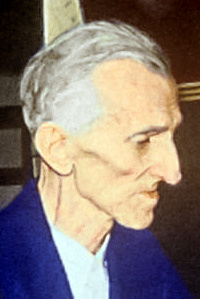U.S. and Allies cheer address by Roosevelt
War strength revelations hailed! Axis attempts usual distortions
By the United Press
President Roosevelt’s State of the Union address to Congress was received with almost unanimous approval in the United States, with jubilation by our allies, because of its revelations of mounting American war strength, and with misinterpretations and distortions in the countries of our enemies.
The United States
New York Times:
The message left no doubt that complete victory, complete disarmament of the Axis powers and maintenance of the United Nations’ front to prevent any attempt at aggression is the central aim of the administration.
New York Daily News:
The gist of the 1943 message was that the Union is in as good a state as could he hoped for, all things considered.
Baltimore Sun:
With his assurance that victory in the war is our first goal and that victory in the peace is sound, President Roosevelt stated the case as his countrymen in general must wish it stated.
Cleveland Plain Dealer:
The conciliatory attitude which the President displayed toward Congress should help to promote national unity…
Kansas City Star:
It was a masterful statement of America’s position in the war and of the entire United Nations cause.
Tulsa World:
We believe the President passed over too lightly the growing dissatisfaction with the bureaucratic element in the federal government which is a creature of the New Deal.
The Scripps-Howard newspapers:
His message, in content factual, held to the achievements and broad purposes that unite us as a people.
House Minority Leader Joseph W. Martin (R-MA):
It is very encouraging to realize that we have passed from the defensive to the offensive.
Senator Robert A. Taft (R-OH):
It was conciliatory and that ought to add to unity and create no dissension.
Senate Minority Leader Charles McNary (R-OR):
It was an excellent review of our war production and efforts based on a faith in ultimate victory.
House Speaker Sam Rayburn (D-TX):
It was a splendid report.
Senator Burton K. Wheeler (D-MT):
It was a very clever political speech.
Senator Homer T. Bone (D-WA):
I particularly liked the President’s approach to the solution of post-war economic problems.
The Allied world
Great Britain: Mr. Roosevelt was heard at the dinner hour. Reporters watching the crowds saw and heard many gestures and expressions of approval. British newspapers were enthusiastic. The London Times thought the address:
…breathed a high sense of purpose without once losing his characteristic grasp upon realities.
The London Daily Herald remarked that Mr. Roosevelt’s statement that the United States could not remain an island in the post-war world was one of “great courage – in the face of an isolationist renaissance.” The newspapers were generally elated with the production figures Mr. Roosevelt revealed.
Latin-American allies: Mexico, Brazil and Cuba were lavish in their praise, particularly of Mr. Roosevelt’s vision of a lasting peace.
The friendly world
All South and Central American countries heard Mr. Roosevelt’s speech clearly by shortwave radio. A Spanish announcer interposed a running translation and later the entire text translated into Spanish was read over the national radios of most countries.
Comment ranged from the approving to the fervent.
The enemy world
The Axis radios, led by the German radio, began at once the task of misrepresenting, misinterpreting and generally tearing down Mr. Roosevelt’s speech for their domestic listeners and for the oppressed in occupied countries.
The speech was being broadcast again and again by the British radio, in English, French, German, Italian and ither languages, however, and the Axis propagandists had their work cut out for them.
The Nazi thesis: Mr. Roosevelt revealed an intention to concentrate mostly on air attacks, indicating that America had realized:
…after setbacks in North Africa and in the Pacific, that American naval or land actions have not the slightest chance of success.
The President appealed to American farmers, because they were causing him grave difficulties, and he made references to “criticism of existing corruption.”
The Italian thesis: His speech was one of “inflated, boastful hopes.” He “sees already the United States dominating the whole world.”
The newspaper Asahi of Tokyo found the President’s message without “facts or convincing arguments,” and said that:
It is ridiculous of the United States President to speak of disarming Japan, Italy and Germany at a time when he must admit serious military defeat.
